|
As the first rays of spring sunshine pierce the remnants of winter, nature whispers tales of renewal and rebirth. Among these narratives is the curious story of April Fool's Day, a day that dances on the fine line between jest and tradition. Interestingly, this day's origins trace back to a time when it coincided with the New Year's celebration, marking a period full of life, light, and warmth. This transition of seasons was not just a change in weather but symbolized a deeper, more profound rebirth.
April Fool's Day, as we know it, is believed to have originated from the switch in the calendar. Before the adoption of the Gregorian calendar in the late 16th century, the New Year was celebrated at the end of March, aligning with the vernal equinox. This period was a testament to nature's cycle of death and renewal, mirroring the human capacity for regeneration and new beginnings. However, when the New Year was moved to January 1st, those who continued celebrating in April were playfully mocked, giving birth to the tradition of April Fool's pranks. Yet, beyond the jests and the pranks lies a deeper connection to the essence of spring – a season that embodies renewal, growth, and the blossoming of light. It prompts a compelling question: should we not revisit this tradition, not as a day of folly, but as a celebration of renewal and light? This reimagined celebration could serve as a symbolic acknowledgment of our own potential for growth and transformation. In the spirit of this rejuvenation, it might be fitting to propose a new name for this day of new beginnings. "Renewal Day" or "Spring's Awakening" captures the essence of rebirth and the blooming of light that characterizes this time of year. It could be a day dedicated to self-reflection, setting new intentions, and embracing the warmth and light that spring promises. This concept of embracing light and embarking on a journey of renewal is beautifully captured in Joseline Jean-Louis Hardrick's book series, "Let Your Light Shine." These narratives, much like the proposed "Spring's Awakening," invite readers to find their inner light and strength, encouraging a journey of personal growth and enlightenment. Joseline Jean-Louis Hardrick's works are a beacon for those seeking inspiration and a reminder that every individual possesses an inner light capable of illuminating the darkest of paths. For more on this empowering book series, visit lightshinebook.com where the themes of renewal, growth, and the indomitable spirit of spring are explored in depth. As the season changes, let us embrace the spirit of renewal, both in nature and within ourselves. Let "Spring's Awakening" be a day where we set aside the jests of April Fool's and instead celebrate the potential for renewal, growth, and the nurturing warmth of light. In doing so, we not only honor the tradition's origins but also embark on a personal journey of rebirth and illumination, letting our own light shine brightly. Interested in the audiobook- get a free coy when you sign up for a subscription with Audible here.
0 Comments
As the snow melts away, revealing the first hopeful sprouts of spring, families around the world embrace a season of renewal, celebration, and the joyful moments that bring us together. This spring, embark on a delightful journey with our latest children's book series, "From Fur to Feather, Moms and Babies Stick Together." Crafted with love and care, this trio of rhyming books is a heartwarming exploration of the bonds that unite us, the beauty of diversity, and the expressions of love that transcend all boundaries.
Easter: A Celebration of Renewal and Joy Easter is a time of joy and celebration, marked by the vibrant hues of dyed eggs and the sweet anticipation of the Easter Bunny's visit. Our first book, "How We Look," is a perfect companion for this season of rebirth, showcasing the wonderful diversity of life in a way that's both educational and engaging for children. It's an invitation for parents and grandparents to explore the themes of acceptance and beauty in diversity with their little ones, making it a meaningful addition to any Easter basket. Passover: Stories of Freedom and Family Passover is a profound celebration of freedom and the stories that bind generations. As families gather to share the tale of Exodus, our series offers a gentle reminder of the importance of storytelling in our lives. "Where We Live" transports readers to the diverse habitats of our animal friends, reinforcing the values of freedom and the significance of home. This book serves as a wonderful gift, encouraging schoolteachers and parents to share the universal message of liberty and belonging. Ramadan: A Time of Reflection, Community, and Renewal In the Islamic tradition, Ramadan stands as a profound month of fasting, reflection, and community. It is a time when families and communities come together to share in the spirit of generosity, empathy, and gratitude. Though not directly tied to the spring season globally due to the Islamic lunar calendar, Ramadan's emphasis on renewal of faith and the strengthening of familial and community bonds resonates deeply with the spirit of spring. "From Fur to Feather" can serve as a gentle reminder of these shared values, offering stories that mirror the acts of kindness, love, and unity that Ramadan promotes. It is a wonderful opportunity for parents and educators to introduce children to the beauty of diverse traditions and the universal values that connect us all. As families gather to break their fast or engage in communal prayers, let the tales of "From Fur to Feather" inspire conversations about love, compassion, and the importance of caring for each other and the world around us. Spring: A Season of Growth and Exploration With the world blooming anew, spring is the ideal time for children to learn about the natural world. Our series, with its vibrant illustrations and engaging rhymes, is a splendid tool for teachers and social media influencers to inspire curiosity and love for nature. "From Fur to Feather" is more than just a series; it's a springboard for outdoor adventures, explorations, and the joy of discovering the world together. Mother's Day: A Tribute to Love and Care Mother's Day is a heartfelt celebration of the women who nurture, teach, and love us unconditionally. "Words of Love," the final book in our series, is a tender homage to the language of love that mothers and babies — whether covered in fur or feather — share. It's a reminder of the unbreakable bonds of care and affection that define us. This book is a perfect gift, inviting grandparents, fathers, and children to express their love and gratitude in the most beautiful way possible. From Fur to Feather: Your Springtime Companion Our series, "From Fur to Feather, Moms and Babies Stick Together," is more than just a set of books; it's a celebration of life, love, and the beauty of the natural world. It's an invitation to parents, grandparents, and schoolteachers to come together and share in the joy of the season. From Easter to Passover, from the freshness of spring to the warmth of Mother's Day, let these stories be a part of your family's traditions and memories. As we embrace the traditions and holidays of this vibrant season, let's remember the joy of shared stories and the bonds they strengthen. Happy spring to all! Get a free preview of Book Three Words of Love here. For roe wonderful books to celebrate the season, visit anybookthatinspires.com. XOXO, Joseline Introduction We are living in a hustle culture where it seems like we have to work all the time and be constantly productive in order to be successful or even considered worthy. But when we get caught up in this hustle and bustle it can start to take away from the joy that used to be associated with the activities we used to enjoy. It is important to take time for joy in order to be more productive in our work, however, without sacrificing our own well-being. In this article we will explore how to engage more with your work, and incorporate joyful activities and movement outside of work. Despite the hustle culture, incorporating joy into our lives can help us work smarter, not longer. Understand Your Goals It's easy for our goals to get lost in the hustle culture. When we're so focused on getting everything done quickly, we can forget why we're working in the first place. To bring back a sense of joy, it’s important to take a step back and think about our goals. To help us reframe our goals, it's important to prioritize meaningful goals over short-term ones and set realistic, achievable goals. When we focus on meaningful goals, we can pace ourselves better and create achievable and consistent progress. This helps us build momentum and enjoy our journey instead of just reaching our destination. Break Up Your To-Do List It can be easy to feel overwhelmed when your to-do list starts piling up. Instead of trying to take it all on at once, break up your to-do list into manageable chunks. This will help you focus on one task at a time and make progress more quickly. Additionally, it’s important to set realistic time limits for each task. For example, you could set a goal to finish a certain task within an hour, or take a break after every 45 minutes of work. This will help you stay motivated and keep your energy levels high. Finally, don’t be afraid to take frequent breaks throughout the day. Getting up to stretch or take a quick walk can help you recharge and be more productive when you return to work. Celebrate the Small Wins We often forget to give ourselves credit for the small wins in life—it’s easy to get caught up in the hustle and overlook the little successes that bring us joy. Acknowledging small accomplishments can help us to enjoy the journey more than the destination, and gain a sense of accomplishment and self-worth. Celebrating small wins can also help us reframe failure as a learning experience, allowing us to see the bigger picture and stay focused on our goals. So next time you complete a task or achieve a small milestone, take a moment to acknowledge and enjoy the feeling of victory. It’ll give you that extra push to keep going. Set Aside Time for Joy Finding joy can be difficult when we are caught up in the hustle and bustle of our daily lives. To start reclaiming joy, it’s important to identify the activities that bring you joy and set aside time to do them. Balancing work and self-care is essential for feeling fulfilled and enjoying life. Scheduling joy-filled activities into your week is a great way to make sure that you are taking care of yourself in addition to taking care of your work. When we take care of ourselves, we are better able to focus and be productive in the long run. Taking a break from work to do something that brings us joy can help us refocus and stay energized. Take a Technology Break In the hustle culture, it can be easy to get caught up in the latest gadgets and technology. It's important to take some time away from these screens to not only give your eyes a break, but to give yourself a break too. Unplugging from technology gives you the opportunity to focus on other activities that will bring joy to your life. There are plenty of analog activities to choose from. Consider journaling, coloring, taking a yoga class, or going for a walk. Reconnecting with nature can help ground you and provide perspective. You may find yourself feeling more refreshed and energized afterwards. Taking a technology break can also provide you with a sense of relaxation and allow you to take a step back from the hustle. It can be hard to step away, but the rewards are worth it. You will be able to enjoy activities that bring you joy and help you to break out of your routine. By taking a technology break, you can enjoy a much needed break from the hustle culture. Conclusion As busy professionals, it can be easy to get overwhelmed by the hustle culture and fall into the trap of thinking that success and productivity come from working all the time. However, by taking some time to enjoy the journey and set aside time for joy, we can gain perspective and find a better balance between work and self-care. Joyful activities that may seem trivial can help us stay energized and productive throughout the work day, without having to put in longer hours. So, remember the fifth reminder: engage. Invest in joy and you’ll find that taking a break can be just as beneficial for your work life as working harder.
Introduction Nourishing oneself is often seen as an afterthought, but it is just as important as diet and nutrition. It involves movement, thoughts, music, words, and environmental input, allowing us to fill our cup with meaningful activities. Unfortunately, the modern world has become sterile, with food that is practically dead and filled with artificial ingredients, leading to burnout among professionals. In this article, we'll look at ways to incorporate nourishing activities into our daily lives, even with the busiest of schedules. When busy professionals don't get proper nutrition, they can become malnourished. Malnourishment can lead to a number of physical and mental health issues, including fatigue, weakened immunity, reduced cognitive functioning, and depression. Additionally, it may cause a decrease in concentration and productivity, making it difficult for the professional to maintain their high standards. To avoid the consequences of malnourishment, busy professionals should make sure to make time for healthy meals and snacks throughout the day and incorporate nutrient-dense foods into their diets. Taking regular breaks to relax and refocus can also help to reduce the effects of stress, making it easier to prioritize nutrition. Movement When it comes to nourishing ourselves, movement plays an important role. Engaging in physical activity can help to reduce stress, improve mental clarity, and increase energy levels. There are many types of activities to incorporate, from yoga and stretching to running and strength training. It is important to find something you enjoy and make it part of your daily routine. Scheduling time for movement can be tricky, but a little bit of effort can go a long way to improve your mental health. Thoughts Thoughts have the power to shape our entire lives, and as such, it is important to make sure that they are filled with positivity. Positive thoughts can help reduce stress and anxiety while also providing us with a sense of contentment and satisfaction. There are several ways we can incorporate positive thinking into our lives. For instance, we can try to focus on the good in our lives and practice gratitude, which can help us cultivate positive feelings. Additionally, we can practice mindfulness, which can help us become more aware of our thoughts and feelings. Scheduling time into our days for positive thinking can also be beneficial. We can set aside a few minutes a day to take a few deep breaths and be present with our thoughts. We can also try to make it a habit to think positively in challenging situations. Taking the time to cultivate positive thoughts can help us feel more energized and motivated. Music Music has the power to lift our spirits and tap into emotions. It can be a great source of nourishment as it can be enjoyable, calming, and energizing. Listening to music can help us stay connected to our emotions, allowing us to process them in a healthy way. There are many different genres of music to explore. Classical, jazz, world music, and anything that speaks to you can be beneficial. Find what speaks to you and make it part of your routine. Take the time to listen while you work, cook, or relax. Make sure to also schedule out time for listening to music if you need some extra motivation or to find that creative spark. Words Speaking positively is one of the most powerful forms of nourishment. It helps to engage our minds and hearts and can be done anywhere, anytime. With positive words, we can create a positive mindset and environment for ourselves. We can also use positive words to encourage and uplift others. When speaking positively, it is important to focus on being kind and compassionate to ourselves and others. Some tips for speaking positively include reframing and expressing gratitude. Reframe negative thoughts or situations to help stay positive and focus on the positive things that we are grateful for. Scheduling time for positive self-talk or affirmations can help us keep our thoughts in check and keep us grounded. Environmental Input We often forget that the environment we inhabit has a tremendous impact on our mental and physical health. Connecting with nature, even in small ways, can be incredibly beneficial in terms of nourishment. Taking walks in the park, spending time in the garden, or simply admiring a sunset help to bring us back to our natural rhythms and rhythms of life. Activities outdoors can be incredibly fulfilling and rewarding, and they provide us with much-needed fresh air and natural beauty. For instance, gardening can be a great way to disconnect from the stress of everyday life and get back to basics. Taking part in outdoor activities can also provide us with a sense of accomplishment and a deep appreciation of the environment. Scheduling time for outdoor activities can be a great way to nourish ourselves. Taking a few moments each day to appreciate the natural world can help to restore our sense of balance and provide us with the energy and renewal we need to face our daily challenges. Conclusion
Nourishing ourselves is more than just the food we eat. It’s a combination of activities that help us to stay whole, balanced, and healthy. Movement, positive thinking, listening to music, speaking positively, and connecting with nature are all forms of nourishment that can significantly improve our mental health and help us to avoid burnout. To make the most of the benefits of nourishing ourselves, we should schedule time in our daily lives for meaningful activities that promote physical, mental, and emotional wellbeing. Taking the time to nourish ourselves can help us to feel energized, relaxed, and more connected to the world around us. Introduction We all have an inner voice that is with us from birth, but modern life can make it hard to hear. Intuit: The Third Reminder is meant to help us reconnect with this inner wisdom by overcoming the challenges of busyness, conflicting messages from our society, and other roadblocks to our intuition. By focusing on practical tips and exercises, this article offers a way to reclaim our intuition and benefit from its insights. By taking the time to reconnect with our inner voice, we can look within to find answers and embark on a path of self-discovery. Busyness of Life In our modern, fast-paced world, it can be easy to get caught up in the hustle and bustle of our lives, and in the process, lose touch with our inner voice. We are all too often caught up in the demands of our professional lives, with multiple responsibilities, deadlines, and meetings that can leave us feeling drained and unable to connect with our intuition. All of these daily tasks and pressures can make it difficult to access the wisdom of our inner voice, which can be essential for calming our minds and finding clarity in the midst of our hectic lives. Conflicting Messages from Society Our modern society can be a major source of conflicting messages that make it difficult to access our inner voice. We are constantly bombarded with advice, opinions, and expectations from all directions, making it hard to know which route to take. From social media to the workplace, we can be swayed by what others think and feel, rather than trusting our own inner voice. It’s important to be aware of these messages and be mindful of the impact they can have on our intuition. We must be able to differentiate between our own inner voice and the expectations of society. When we stop and pay attention to our inner voice, we can begin to sort through these messages and make decisions that feel true to ourselves. When we ignore our inner voice, it can lead us down a path that may not be right for us in the long run. It’s important to be conscious of the conflicting messages that we are exposed to, so that we can reclaim our intuition and make decisions that are truly reflective of what we want and need. Reclaiming Intuition In this modern world, it can be hard to access our inner voice and intuition as outside noise and conflicting messages from society can be overwhelming. Taking the time to reconnect with our intuition is vital for our mental wellbeing. There are a few simple practices that we can use to reconnect with our intuition. Firstly, make sure to take time for yourself each day. Whether it’s five minutes or an entire hour, having time dedicated to yourself is important to reconnect with your intuition. Use this time to meditate, do yoga, or just sit in silence. These activities will help quiet the noise from outside and allow us to focus on our inner voice. Secondly, keep a journal. Writing out our thoughts can be a great way to sort out our intuition from our thoughts, as well as allowing us to be more mindful. Writing down our thoughts can help us to identify our intuition and better understand our feelings on certain matters. These practices are a great way to start reconnecting with our intuition and discovering the power of our inner voice. Benefits of Reconnecting Reconnecting with our inner voice has a multitude of benefits. Our intuition helps us make decisions by providing a source of guidance and insight. By understanding our intuition, we can tap into a deeper understanding and awareness of ourselves and our environment. This can improve our relationships, increase our mental clarity, and empower us to make better decisions in life. Furthermore, reconnecting with our intuition can help us trust our own judgement, enabling us to live more authentically and confidently. By reconnecting with our intuition, we can foster a deeper connection with ourselves and the world around us. Conclusion
Our inner voice is an important part of who we are. It guides us in life and helps us to make decisions that are in line with our values and beliefs. Unfortunately, the busy and chaotic nature of our lives, combined with conflicting messages from society can make it difficult to access our inner voice. Fortunately, there are simple practices that we can use to reconnect with our intuition, allowing us to unlock the deeper wisdom within ourselves. Reclaiming our intuition offers numerous benefits, from increased self-awareness to improved decision-making. By implementing the practices outlined in this article, we can start to tune back into our inner wisdom and reclaim the third reminder. Introduction Staying hydrated is essential for optimal health and well-being. Hydration is often overlooked but is a vital factor in maintaining focus and energy, as well as overall health. For years I was unaware of the importance of proper hydration, and how significant an effect it had on sleep, digestion, and even blood work. It wasn’t until I started a regular hydration program that I saw a tremendous improvement in my health. In this article, we will cover the importance of staying hydrated, the signs and symptoms of dehydration, the causes of dehydration, the benefits of staying hydrated, and strategies to stay hydrated. Signs and Symptoms of Dehydration One of the most common signs of dehydration is a headache. Other symptoms of dehydration include dry skin, muscle cramps, fatigue, and dark urine. All of these can be indicators that you're not drinking enough fluids and that it's time to increase your water intake. In severe cases, dehydration can lead to dizziness, confusion, and even death. Therefore, it's important to be aware of the signs and symptoms of dehydration so that you can take steps to prevent it. Dehydration can also manifest itself in other ways. For example, it can cause constipation, dry eyes, and lightheadedness. It can also lead to a decrease in energy levels, which can make it difficult to concentrate and stay focused. If you experience any of these symptoms, it may be time to assess your hydration levels and take action. Finally, it's important to note that drinking soda or other sugary beverages can actually worsen dehydration. These drinks contain caffeine and sugar, both of which act as diuretics and can further decrease hydration levels. Therefore, it's best to stick to water and other natural beverages when hydrating. Causes of Dehydration Dehydration can be caused by a variety of factors. Not consuming enough fluids is probably the most common cause. Not drinking enough water, especially during outdoor activities, can quickly lead to dehydration. Additionally, extreme heat, excessive exercise, and digestive issues such as diarrhea and vomiting can also cause dehydration. It is important to take notice of the signs and symptoms of dehydration and take proper steps to hydrate. Treatment of Dehydration It is important to listen to your body and take proper steps to treat dehydration as soon as it is detected. The most effective way to treat dehydration is to replenish the lost fluids and electrolytes by drinking plenty of water and other hydrating fluids. If symptoms persist, electrolyte solutions or oral rehydration salts may be taken to restore the balance of electrolytes in the body. In severe cases, medical attention may be necessary. Health Benefits of Staying Hydrated Staying hydrated is essential for our overall health and wellbeing. Proper hydration helps with physical performance, mental clarity, digestion, blood pressure, and skin health. When we are adequately hydrated, our bodies are able to perform optimally, and we benefit from improved health. Adequate hydration can help improve physical performance, as our muscles, organs, and cells need the right amount of water to function properly. Additionally, drinking water can help support mental clarity and focus, as it helps send signals to the brain. Not drinking enough fluids can lead to dehydration which can cause a lack of concentration and impaired cognitive function. Proper hydration also helps support digestion and can reduce constipation, as the body needs water to break down food and absorb nutrients. Drinking enough fluids can also help support healthy blood pressure, which can lead to a healthier heart and circulatory system. Finally, drinking enough water can help keep our skin looking healthy and glowing, as it helps flush out toxins from the body. By understanding the health benefits of staying hydrated, we can make sure that we are getting the water our bodies need to stay healthy and in top condition. Strategies to Stay Hydrated For busy professionals, drinking enough water throughout the day can be a challenge. This is because there is often a lot going on and limited time for hydration. For starters, water can be hard to fit into busy schedules. You may not always have time to take a break from working, and you may not be able to drink as much as you need when you are on the go. In addition, access to water can be an issue if you are not near a water fountain or tap. Lastly, it can be difficult to remember to drink water when our focus is on work. However, there are ways to make sure that we stay hydrated even on the busiest days. For starters, it can help to keep a reusable water bottle near you that you can fill up throughout the day. If you have to leave your workspace for meetings or errands, try and bring your water bottle with you to keep sipping on along the way. Additionally, setting reminders or alarms throughout your day can help you remember to drink water and keep up with your hydration goals. Lastly, it can help to add fruits and vegetables that are high in water content to your diet, such as cucumbers or watermelons. With these tips in mind, busy professionals can stay hydrated even when their days are busy! One of the biggest challenges busy professionals face when it comes to drinking water throughout the day is finding the time to do it. With a hectic schedule filled with meetings, deadlines, and a multitude of tasks, finding a moment to take a break and drink water can be difficult. Additionally, if you are constantly on the go, you may find that you don’t have easy access to a water source. Another challenge is remembering to drink enough water. It’s easy to become distracted and forget to stay hydrated, especially when focusing on completing work tasks. It’s important to prioritize drinking water throughout the day, as your body needs it to stay healthy and function optimally. Finally, busy professionals might also struggle with not having a plan for drinking enough water throughout the day. It can be difficult to track your water intake and ensure that you are drinking enough. Aiming for a certain number of glasses daily and carrying a reusable water bottle with you can help you stay hydrated and ensure you are drinking enough. Overall, staying hydrated as a busy professional requires some planning and effort. However, making an effort to drink water throughout the day will go a long way in keeping you healthy and productive. Here are a few simple strategies to make sure you stay hydrated: - Carry a refillable water bottle - make sure it's with you at all times and refill it throughout the day. - Drink a glass of water when you wake up - this will start your day off with some good hydration. - Eat fruits and vegetables with high water content - like cucumbers, celery, and watermelon. - Drink herbal tea - it has natural hydrating benefits. - Drink before, during, and after exercise - this will help keep your body replenished and performing at its best. - Set reminders - if you need a reminder to drink more water, use an app, or set a clock or timer. - Flavor your water - if you don't like the taste of plain water, add some fresh fruit or cucumber slices for a sweet, delicious taste. - Stay aware of your body - if you're having any signs of dehydration, like feeling thirsty, tired, or having a headache, make sure to drink a few glasses of water right away. Conclusion
Staying hydrated is essential for our physical and mental health. Not drinking enough fluids can lead to a variety of health problems, such as headaches, dry skin, fatigue, and muscle cramps. Additionally, dehydration can also cause long-term health problems like high blood pressure, digestive issues, and poor skin health. Fortunately, there are relatively simple strategies to ensure proper hydration. Carry a refillable water bottle, drink a glass of water when you wake up, consume fruits and vegetables with high water content, drink herbal tea, and make sure to drink before, during, and after exercise. Taking these small steps to stay hydrated can help improve physical performance, mental clarity and focus, digestion, blood pressure, and skin health. Don’t forget, hydrate- it’s the second reminder. Introduction We all have busy lives and demands on our time. As professionals, achieving a balance between our professional and personal lives is essential for a fulfilling life. However, we often overlook one of the most important aspects of our wellbeing – sleep. Getting enough quality sleep is essential for optimal physical and mental health, and should be at the top of our list of priorities. In this article, we’ll discuss the importance of sleep, how to improve your sleep quality, and low-cost and free ways to get a good night’s rest. We will also include some tips for parents with young children. Busy professionals often struggle to get a good night's sleep due to a variety of different factors. Most commonly, this lack of sleep is caused by stress and anxiety. Many professionals are constantly juggling multiple projects and responsibilities, and this can lead to increased levels of stress and worry. When these worries start to accumulate, it can make it difficult to relax and fall asleep. Another factor that often contributes to poor sleep among busy professionals is technology. The convenience of mobile devices and computers can make it difficult to shut off work when it's time for bed. It's easy to become engrossed in emails, text messages, and other work-related tasks, which can lead to decreased quality of sleep. Finally, lifestyle choices can play a role in how well a person sleeps. Eating too late at night, drinking caffeine late in the day, or not exercising can all reduce the quality of sleep. Busy professionals often have little time to dedicate to physical activity or healthy eating, which can further contribute to poor sleep patterns. Overall, busy professionals often struggle to get a good night's sleep due to stress, technology, and lifestyle choices. To improve sleep quality, it's important to make sure to practice stress-relieving activities before bed, set boundaries with technology use, and adopt healthy lifestyle habits such as eating and exercising regularly. Sleep Habits to Improve Sleep Quality Good sleep habits are necessary for getting enough quality sleep. Sleep is regulated by both light and dark and it is important to keep these in balance. Exposure to natural light during the day encourages the body to stay awake, while darkness helps the body to relax and prepare for sleep. It is important to practice good sleep habits before bedtime, such as avoiding screens and stimulating activities, as these can interfere with the body's ability to relax. Creating a relaxing sleep environment also helps. Creating a soothing atmosphere, including dim lights and calming scents, will help the body to relax naturally and fall asleep easier. The Benefits of Well-Rested Sleep Getting enough quality sleep is an essential part of leading a balanced and fulfilling life. Not only does it help to improve mental alertness and concentration, but it also boosts physical performance and enhances mood. Studies have shown that getting a good night's rest has the potential to reduce stress, improve decision-making capabilities, and increase problem-solving skills. Additionally, individuals who get enough sleep are more likely to experience higher levels of creativity and productivity. Not only can a better night's sleep improve overall health, but it can also lead to higher levels of job satisfaction. A well-rested mind is better able to focus on tasks and complete them to the highest possible standard. As a result, this can lead to increased job satisfaction and career success. Furthermore, improved mental and physical health can help to reduce sick days, enhancing productivity and profitability for businesses. Practical Tips for Getting Quality Sleep Developing healthy sleep habits is essential for achieving quality sleep. Establishing a consistent sleep and wake time is the first step – this will help to regulate your internal body clock and create a rhythm to your day. Secondly, limiting stimulants such as caffeine, alcohol, and nicotine can help to improve your sleep quality. Finally, regular exercise during the day can help to tire your body out so you can sleep better at night. With these tips, you can be sure to get the restful sleep you deserve. Natural Remedies to Get a Good Night's Sleep When it comes to getting a good night's sleep, there are plenty of natural remedies that can help. Aromatherapy is one of the most popular methods, as it helps to relax the body and mind and can also reduce stress and anxiety. Herbal teas are also a great way to promote relaxation and sleep. Chamomile, lavender, and valerian are some of the most popular herbs used for improving sleep. Meditation can also help to relax the mind and body and can be practiced before bedtime to help prepare for sleep. Sleep and Children When it comes to children, getting enough sleep is also essential for their physical and mental health. Establishing a consistent bedtime routine, limiting screens and stimulating activities before bedtime, and ensuring the bedroom is conducive to sleep are all important measures to keep in mind. Parents should start by setting a consistent bedtime for their children each day and sticking to it. This includes having the same bedtime routine each night, such as reading together, taking a bath, or listening to calming music. Limiting screens and stimulating activities before bedtime is also important, as these can inhibit a child's ability to fall and stay asleep. Ensuring the bedroom is conducive for sleep, such as being dark, quiet and at a comfortable temperature, can also help children get the rest they need. In addition to the importance of sleep for physical and mental health, adequate sleep is essential for a child's learning and development. Research has shown that children who do not get enough sleep are more likely to have difficulty concentrating, have difficulty controlling their emotions, and have difficulty with problem-solving, memory, and other cognitive functions. Therefore, ensuring children get enough sleep is essential for their overall health and wellbeing. Busy professionals with young children often find it difficult to get enough high quality sleep. However, there are some steps they can take to help ensure they get a better night’s rest. First, try to stick to a regular sleep schedule as much as possible. This means going to bed and waking up at the same times each day, even on the weekends. This helps to regulate your body’s natural circadian rhythm, resulting in more restful sleep. Second, create an environment conducive to sleep. Make sure the bedroom is dark and quiet. If outside noise is an issue, use white noise machines or earplugs to block out sound. Investing in a comfortable mattress and pillows can also make a difference in the quality of your sleep. Third, limit your exposure to screens before bed. The light from screens can interfere with your body’s natural production of melatonin, an important hormone associated with sleep. Avoid using screens for at least one hour before bedtime. Fourth, try to get some exercise during the day. Even moderate amounts of exercise can help promote better sleep at night. Finally, keep worrying thoughts away by writing them down before bed or creating a to-do list for the following day. This will help keep your mind from racing and enable you to relax more easily at night. By following these simple steps, busy professionals with young children can get more high quality sleep and feel more rested during the day. Getting quality sleep is essential for optimal physical and mental health, as well as for creating a fulfilling life. Establishing consistent bedtimes, limiting screens and stimulating activities, and creating a relaxing environment can help promote good sleep. Practicing good sleep habits, such as limiting caffeine and other substances, can also help improve sleep. Natural remedies like aromatherapy, herbal teas, and meditation can also help improve sleep. Finally, parents of young children should establish a consistent bedtime routine, ensure the bedroom is conducive to sleep, and limit screens and stimulating activities before bedtime. Prioritizing sleep can help us manage our busy lives, increase our alertness and concentration, improve our physical performance, and enhance our mood.
Professionals across various fields often seek innovative ways to engage with younger audiences and impart knowledge about their work. One underutilized yet highly effective method is through authoring a children's book. This approach not only fosters a connection with children but also serves as a fun, educational tool to introduce them to different professions. Here, we explore how writing a children's book can be a transformative way for professionals to connect with children during classroom visits, along with three essential tips for a successful interaction.
The Power of a Children's Book Children's books have a unique way of simplifying complex concepts, making them accessible and enjoyable for young minds. For professionals, creating a book about their field allows them to share their passion and knowledge in a format that resonates with children. This can spark curiosity, inspire future career interests, and even demystify what adults do at work all day. 1. Come Prepared with Conversation Starters When visiting a classroom, having a children's book that you've written about your profession is a fantastic icebreaker. To enhance this experience, come prepared with conversation starters that tie back to your book and profession. This might include discussing the main character's journey, the challenges they face in the book related to your field, or asking students what they think about certain aspects of your work. These prompts can encourage lively discussions and make the visit more interactive. 2. Have an Activity Sheet Engagement shouldn't end with the conversation. Providing an activity sheet related to your book and profession can further enrich students' learning experience. This could be a simple worksheet that asks questions about the book, a coloring page of a scene, or puzzles that incorporate terminology from your field. Including your contact information on these sheets can also open a channel for further communication, encouraging students, teachers, or parents to reach out with more questions or for additional resources. 3. Go with the Flow While it's important to come prepared, it's equally crucial to be flexible during your visit. Allow students to lead the conversation to topics they're genuinely interested in. This student-led approach ensures that the discussion remains engaging and relevant to the children's curiosities. It can also provide insights into how kids perceive your profession, offering valuable perspectives that you might not have considered. Incorporating a children's book into your professional outreach is not just about promoting your field; it's about building meaningful connections with the next generation. For those looking to embark on this rewarding journey, Joseine Hardrick and Any Book That Inspires offer comprehensive publishing services to bring your vision to life. From ideation to publication, we're here to support your creative endeavor every step of the way. Moreover, for inspiration and a shining example of how impactful a children's book can be, check out Dr. Lyndonna Marrast's "Our Grandparents Are Different From Us" on her website at lyndonnamarrast.com/book. This book beautifully illustrates the diverse roles and experiences of grandparents, offering a heartwarming perspective that resonates with children and adults alike. Writing a children's book about your profession is more than just an educational tool; it's a legacy that can inspire curiosity, empathy, and understanding in young readers. Take the leap and share your story with the world. Today, I want to share with you a deeply personal and emotional journey that I recently went through - the loss of my beloved dog, Chubbs. Chubbs, also known as Chubb Rock, was not just a pet; he was a cherished member of our family for 12 wonderful years. Sadly, his battle with diabetes took him away from us, and I had to make the heart-wrenching decision to let him go.
Remembering Chubbs Chubbs was a Silverback Yorkie with a personality as big as his heart. He brought joy, laughter, and unconditional love into our lives every day. His silky silver, black and brown fur, expressive eyes, and wagging tail were a constant source of happiness. We shared countless adventures, belly rubs, and cozy cuddles. He was not just a pet; he was my confidant, my friend, and my fur baby. The Battle with Diabetes About a year ago, Chubbs was diagnosed with diabetes. It was a challenging journey for both him and us. Managing his condition required a strict daily routine of insulin injections, monitoring his blood sugar levels, and adjusting his diet. Despite the difficulties, Chubbs faced it all with bravery and resilience. The Difficult Decision As the months passed, Chubbs' health began to decline. His diabetes was taking a toll on his tiny body, and he was no longer the lively, playful pup we knew. It was agonizing to watch him struggle, and it became clear that his quality of life was diminishing. Making the decision to say goodbye was the hardest thing I've ever done. Coping with Grief Losing Chubbs left a void in my heart that feels immeasurable. I found myself longing for his presence every day. Coping with pet loss can be an incredibly challenging journey, and I want to share some resources that helped me during this difficult time:
Remembering the Love While the pain of losing Chubbs will always remain, I find solace in the beautiful memories we created together. He may no longer be by my side, but he will forever be in my heart, a shining star in the night sky. I hope that by sharing my story, I can offer some comfort and support to those who are also grieving the loss of a beloved pet. Remember that you are not alone, and there are resources and people who care about you during this difficult time. Chubbs, you will always be my little silverback Yorkie, and I will carry your love with me forever. With love and fond memories, Joseline Jean-Louis Hardrick Savoring Freedom: The Story of Soup Joumou in "Sunday Squash Soup" by Joseline J. Hardrick12/28/2023 In the heart of Haitian culture lies a dish steeped in history and symbolism - soup joumou. This traditional squash soup, more than just a culinary delight, serves as a poignant reminder of Haiti's arduous journey to independence and its status as the second democracy in the New World. Joseline J. Hardrick's "Sunday Squash Soup" is a captivating book that delves deep into this cultural icon, inviting readers to explore Haiti's revolutionary past and its declaration of independence from slavery and colonial rule.
The book opens a window into the Haitian soul, revealing how soup joumou, once a dish forbidden to slaves by their French masters, became a symbol of freedom and unity. Every spoonful of this soup, consumed on Haitian Independence Day, is a tribute to the resilience and bravery of the Haitian people. Hardrick's narrative weaves historical facts with heartwarming storytelling, making "Sunday Squash Soup" an essential read for anyone looking to understand the cultural significance of Haiti's revolution. Through its pages, "Squash Soup Sunday" not only educates but also inspires. It's a reminder of how food can be a powerful medium for storytelling and cultural preservation. As Hardrick eloquently puts it, soup joumou is more than a dish; it's a bowl full of history, a recipe passed down through generations, each ingredient carrying a story of struggle and triumph. To truly embrace the spirit of Haiti's Independence Day and to appreciate the depth of its history, "Sunday Squash Soup" is a must-have on your bookshelf. It's more than just a book; it's a celebration of freedom, a homage to the enduring spirit of the Haitian people, and a delicious journey through one of the world's most inspiring culinary traditions. Get your copy of "Sunday Squash Soup" and join in the celebration of Haiti's rich history and vibrant culture. Purchase the book here #SquashSoupSunday #JoselineJHardrick #HaitianCulture #SoupJoumou #FreedomInABowl #CulturalHeritage #BookReview |
AuthorI am a lawyer, a mom, a wife, a teacher, and a coach. Archives
March 2024
Categories |


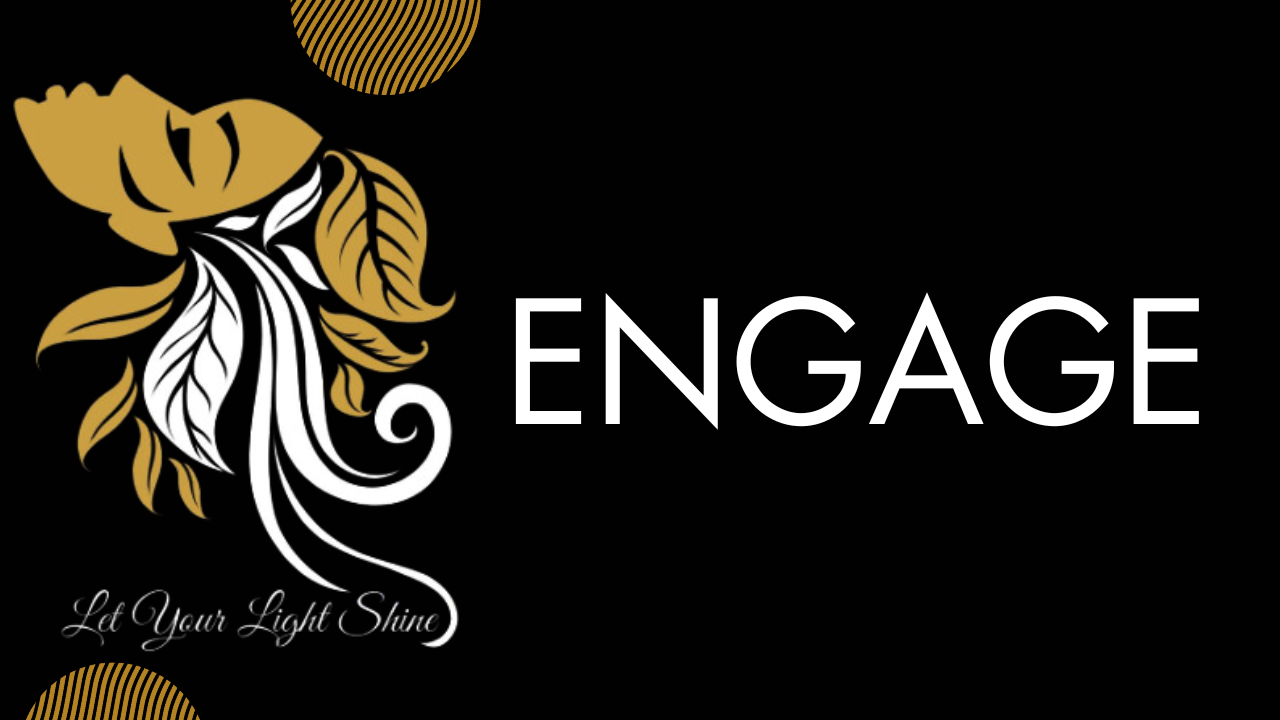
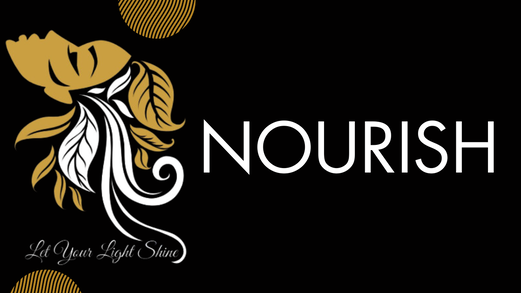
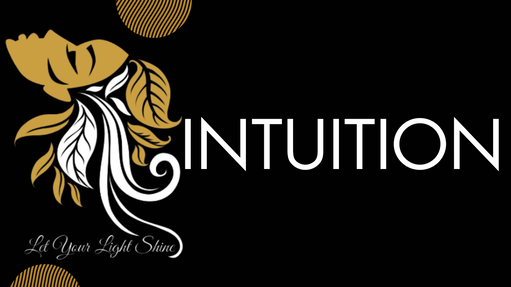
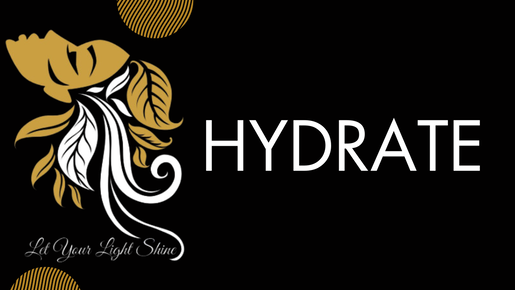
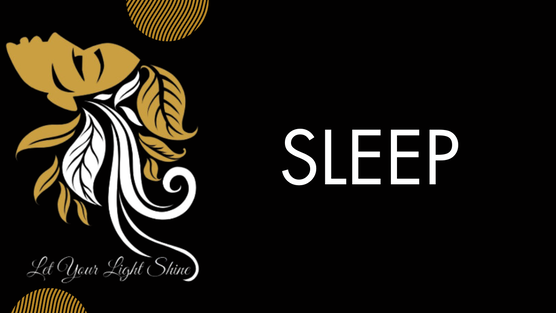



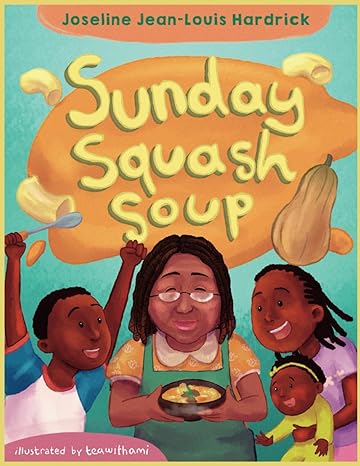
 RSS Feed
RSS Feed